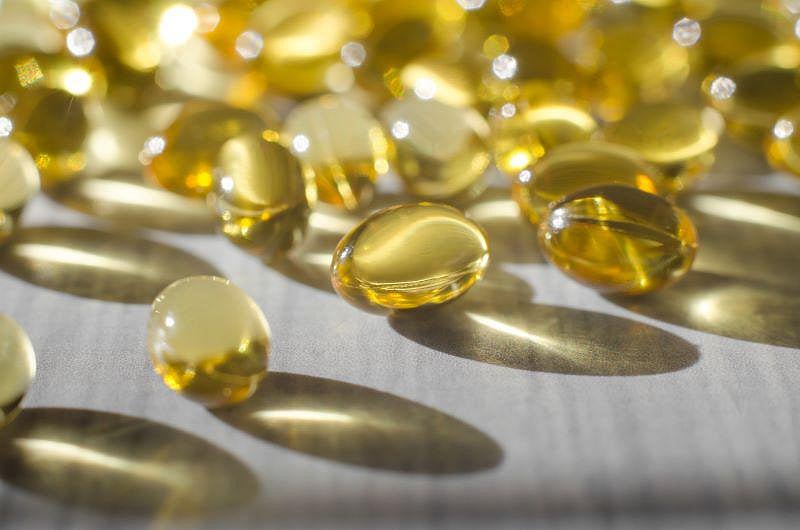Manténgase sano!

- Dennis Thompson
- Posted October 25, 2022
Vitamin D Could Help Extend Your Life: Study
A vitamin D deficiency puts you at risk for more than just weakened bones, a major new study reports.
Too little vitamin D in your system can increase your overall risk of premature death, as well as your specific risk of dying from cancer, heart disease or lung disease, according to data gleaned from more than 307,000 U.K. residents.
"Each of the cause-specific forms of death that we assessed echo the same theme -- this being the importance of having sufficient vitamin D prior to facing any of these life-challenging situations,"said lead researcher Joshua Sutherland. He is a PhD candidate with the Australian Center for Precision Health at the University of South Australia.
Vitamin D is known at the "sunshine vitamin"because your skin synthesizes the nutrient upon exposure to direct sunlight. It's primarily known as a crucial nutrient for building and maintaining healthy bones.
However, prior research has shown that vitamin D receptors are found in most major organs and human tissues, indicating that it plays a role in regulating many other functions in the body, the researchers explained in background notes.
To examine the extent of vitamin D's importance, Sutherland and his colleagues tapped into the UK Biobank, a large-scale biomedical research database containing in-depth genetic and health information from half a million participants in England, Scotland and Wales.
The research team identified just over 307,600 people for whom the UK Biobank had available measurements of both their vitamin D blood levels and their genetic data.
People genetically predisposed to suffer from a vitamin D deficiency were 25% more likely to die from any cause during the study, compared with people whose genetics would promote healthy levels of vitamin D.
Genetically driven vitamin D deficiency also increased a person's risk of dying from a heart-related illness by 25%, cancer by 16% and a lung-related illness by 96%, the researchers reported.
The odds went even higher as a person's vitamin D deficiency became more dire, indicating a dose-response relationship between the nutrient and health.
For example, a person with an extreme deficiency was six times more likely to die from any cause or from heart disease, three times more likely to die from cancer, and 12 times more likely to die from a lung-related ailment.
There's medical evidence to support what this study shows regarding vitamin D's role in fighting cancer, said Emma Laing, director of dietetics at the University of Georgia's College of Family and Consumer Sciences, in Atlanta.
"Vitamin D has anti-inflammatory and other biological effects that have been shown to slow cancer cell growth and tumor progression,"Laing said. "However, data are still mixed with respect to vitamin D and cancer incidence and mortality, and additional research is still needed."
Previous studies also show vitamin D's importance to heart health, Laing added.
"Vitamin D has been shown to regulate the processes involved in maintaining a normal blood pressure and cardiovascular function,"Laing said. "Though several studies indicate that vitamin D supplementation reduces blood cholesterol and blood pressure and improves heart health, there are other studies that do not show these benefits."
Sutherland agreed that "there are specific mechanisms via which vitamin D can promote better health regarding each of the cause specific diseases we assessed,"but he suspects the nutrient actually has a more basic importance to the human body.
"The ultimate role of vitamin D in life-challenging scenarios is likely promoting the ability to retain, at least, the minimal physiologic reserves required to sustain life,"Sutherland said. "This is because vitamin D receptors are found throughout the body, and because of this, many regulatory systems in the body rely on sufficient levels of the vitamin."
People who don't get enough sun should eat foods rich in vitamin D, including fatty fish, mushrooms and products like milk, orange juice and cereals that are vitamin-fortified, Sutherland and Laing said.
Taking a vitamin D supplement also might be necessary, "especially if healthy sun exposure is a challenge,"Sutherland said. "Most countries have national guidelines that assist individuals and health professionals in appropriate supplementation practices."
Boosting vitamin D levels through diet and supplements is particularly important for seniors, Laing noted.
"It is difficult for older adults to obtain enough vitamin D because the ability to absorb this nutrient decreases with age and use of certain medications can hamper absorption,"she said.
"If you are concerned that you are not getting enough vitamin D through food, seeking the advice of your health care provider can help you determine if a supplement is needed,"Laing continued. "An existing diagnosis of osteopenia or osteoporosis, food and medication history, and levels of vitamin D in the blood are factors for health care providers to consider before recommending dietary supplements."
The new study was published online Oct. 25 in the Annals of Internal Medicine.
More information
The Mayo Clinic has more about vitamin D.
SOURCES: Joshua Sutherland, PhD candidate, Australian Center for Precision Health, University of South Australia; Emma Laing, PhD, director, dietetics, University of Georgia's College of Family and Consumer Sciences, Atlanta; Annals of Internal Medicine, Oct. 25, 2022, online
